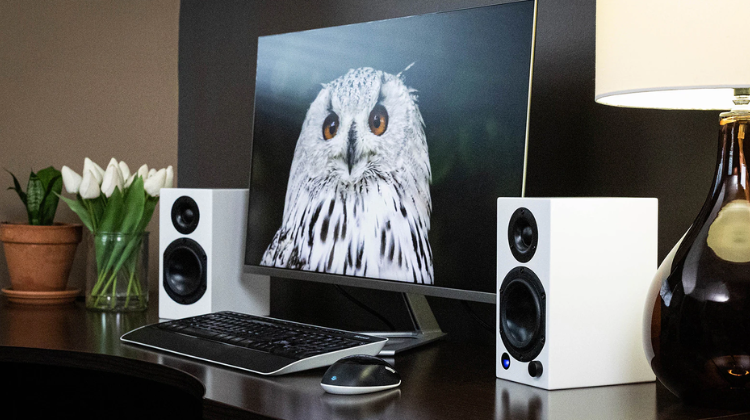They function in the same way as any other powered speaker. They generate sound after receiving a signal. They initially use a DAC (digital-to-analog converter) to convert the signal to analogue if it is digital (often via USB or optical connection). How do Computer Speakers Work, and What are Some Examples?
The built-in amplifier of the speakers then amplifies (makes stronger) the signal from the computer and sends it to the speaker parts (or if the signal is already analogue, typically a 3,5mm connection).
A crossover that separates the signal such that high frequencies go to smaller elements and vice versa occurs before speaker elements of different sizes. To avoid confusion, the speaker elements convert that analogue signal—which is electricity—to sound.
Due to the compact size of computer speakers, which are designed to fit on desktops or within laptops, some higher-quality models include a subwoofer (laptops do not have true subwoofers, regardless of what manufacturers claim; they actually have woofers).
The subwoofer is responsible for handling low-frequency sounds, which necessitate a larger speaker element and enclosure for accurate reproduction, while it forwards the remaining frequencies to the main speakers. The benefit of this setup is that the larger subwoofer can be hidden from view, as humans struggle to pinpoint the source of low-frequency sounds.
Regarding examples, I’m uncertain about your request. If you seek recommendations, I must admit I have limited experience with various computer speakers, and the ones I’ve encountered tend to be either subpar or excessively priced (the KEF EGG speakers are among the best I consider to still fall within the computer speaker category, but they retail for around $500).
Personally, I utilize a separate amplifier with an integrated DAC and standard passive speakers. There are small, relatively affordable amplifiers designed specifically for connecting any speakers to your computer, but I cannot claim expertise in identifying the best options.
The only solid advice I can provide is that if you opt for budget computer speakers, ensure they feature a digital connection unless your motherboard is high-end or you possess a dedicated sound card. This ensures that the signal remains ‘pure’ all the way to your speakers. Most computers output a poor-quality analog signal that is immediately apparent, even with the least expensive speakers (although there have been improvements in recent years).

